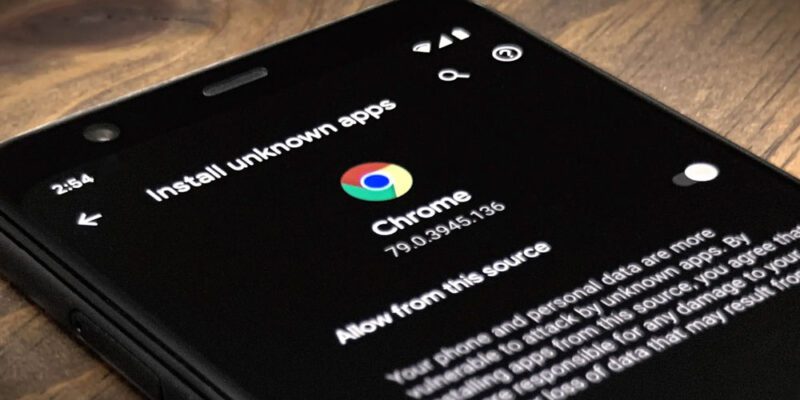Android’s Latest Sideloading Restriction Users Call It the Most Anti-Consumer Move Yet

One of the reasons I’m drawn to Android is that I’m a big fan of open source. However, the new regulations of sideloaded apps, which will go into effect in October 2025, might be Google’s biggest anti-consumer action to date. Starting with certain nations, mandatory implementation of the rule will commence in September 2026, marking a significant milestone when Google will impose restrictions on the freedom to install any app.
For years, I’ve been using programs like Blokada, an ad blocker, and NewPipe, a media/YouTube client. But since the Google Play Store doesn’t carry these apps, I have to get them from outside sources like F-Droid. Because they aren’t verified, I’m afraid I might lose access to some of my favourite Android apps as a result of Google’s stricter regulations regarding sideloaded programs. Although sideloading isn’t going away, consumers may look for other options since they think the opportunities are getting less.
What Google genuinely altered
The guidelines, the schedule, and the true meaning of “certified”
Google’s discussion of “verified developers” seems benign and, in certain respects, beneficial. The Android Developer Blog compared it to “an ID check at the airport which confirms a traveller’s identity but is separate from the security screening of their bags.” However, Google’s analogy might be oversimplified. Installing a developer’s software on smartphones that use Google Mobile Services (GMS), which normally grant access to the Play Store, will only be possible if the developer completes ID verification using official documents or contact details. In 2027, this will be implemented worldwide.
If an app developer is unable to complete this verification, the app will not be allowed to install on the majority of popular phones. Nevertheless, even if they make up a very small portion of all gadgets, some will continue to function normally. All devices that fail Google’s certification test fall into these categories, mostly de-Googled phones or custom ROMs.
By establishing a necessary Google-controlled choke point, Google is constraining and restricting participation in the Android ecosystem, but it is not actually eliminating sideloading. Although this change may seem minor, it obviously changes the open source project from being accessible to anybody (including anonymous or pseudonymous distribution) to being restricted to Google-approved users (via centralised developer identity verification).
Real benefit or security theatre?
Examining Google’s defence
Stricter regulations regarding sideloaded software have a logical basis. It might be presented as a safeguard for users against dangerous applications or dishonest people who pose as someone else. Although this makes sense, the true question is whether it really increases security for regular users.
Given the existence of security checks, this is a legitimate query. Google Play Protect scans sideloaded apps to make Android secure. Android always gives us the option to restrict apps from unknown sources and flags risky installs. These are defences that already exist, notwithstanding their flaws.
It almost seems as though Google’s recent action is predicated on the idea that integrity is synonymous with identity. Is user safety guaranteed by a legitimate government-issued ID? This reasoning is faulty because malware has been seen to infiltrate the Play Store on multiple occasions while being signed and “verified.” The new norm does, however, change the foundation of confidence away from your best judgment and current on-device security alerts.
Some may even argue that this new restriction amounts to selective control since it undermines your freedom to choose your own equipment. In the end, a lot of people might see this as Google’s strategy to defend the integrity of its ecosystem and defend itself against accusations regarding sideloaded malware.
Collateral damage will occur.
The ecosystems that rely on transparency
Due of its enormous influence, this may be the most major anti-consumer action. Large developers, commercial apps, and entire ecosystems based on unverified, freely downloaded APKs could all be affected. There are a staggering number of apps on F-Droid that aren’t on the Play Store. Many of these tools exist because they recognise the necessity to function independently of Google’s extended, domineering arm. Despite their safety, they might not be accessible on common devices due to this sideloading constraint.
Hobbyists and independent developers are also at risk from this. The time, effort, and privacy trade-offs necessary for identity verification are no longer justified for some apps. This might include a lot of one-off initiatives and apps for specialised communities. In the end, we might have a diminished ecosystem, which would be detrimental to everyone.
But perhaps the greatest casualty of all of this is innovation. Android’s versatility makes it fantastic. Everyone can benefit from this ecosystem. Since not everyone will be able or ready to contribute, the installation of a single, centralised gatekeeper will inhibit grassroots creativity, which will inevitably affect the rate and scope of innovation we observe on Android.
Android users’ new reality
Even while Google would contend that the new regulations regarding sideloading apps are intended to safeguard and protect users, many Android users will probably find them restrictive, not to mention take away our devices’ sense of autonomy. Sideloading will still be feasible, of course, but it causes problems for users or developers of apps that aren’t formally listed on the Play Store. There is concern that it might be the start of the end for niche app communities, independent developers, and hobbyists.
There are, of course, solutions, such as backing up APKs, utilising non-certified devices, or looking into other app shops. Regretfully, any workaround may have trade-offs ranging from possible security threats to technical complexity. When sideloading apps on Android, exercise caution. But one thing is certain: Android is becoming less open. We are uncertain as to whether this ecology will eventually become entirely closed.
Views: 264


















